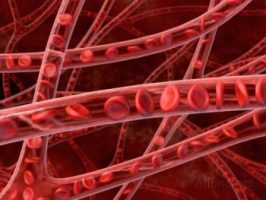- Home
- Editorial
- News
- Practice Guidelines
- Anesthesiology Guidelines
- Cancer Guidelines
- Cardiac Sciences Guidelines
- Critical Care Guidelines
- Dentistry Guidelines
- Dermatology Guidelines
- Diabetes and Endo Guidelines
- Diagnostics Guidelines
- ENT Guidelines
- Featured Practice Guidelines
- Gastroenterology Guidelines
- Geriatrics Guidelines
- Medicine Guidelines
- Nephrology Guidelines
- Neurosciences Guidelines
- Obs and Gynae Guidelines
- Ophthalmology Guidelines
- Orthopaedics Guidelines
- Paediatrics Guidelines
- Psychiatry Guidelines
- Pulmonology Guidelines
- Radiology Guidelines
- Surgery Guidelines
- Urology Guidelines
Likely causes of blood vessel leakage in severe dengue found

A protein secreted by cells infected with dengue virus can cause dangerous leakage of fluid from blood vessels, and new research published in PLOS Pathogens supports a primary underlying mechanism: disruption of a molecular barrier that lines the vessels.
Infection with the mosquito-borne dengue virus can be mild, but it sometimes results in shock or death due to leaky blood vessels. Prior research has shown that the dengue virus (DENV) protein NS1, which is secreted by infected human cells, is a likely culprit behind such leaks. However, the details of its mechanism have been unclear.
In previous research, Dustin Glasner and his colleagues at the University of California, Berkeley, used human cell lines to show that DENV NS1 can disrupt the endothelial glycocalyx-like layer, a protective barrier that lines blood vessels. Other recent evidence suggests that DENV NS1 can also trigger the release of proteins called inflammatory cytokines from immune cells, which could contribute to blood vessel leakage.
To determine the relative impact of these two mechanisms, Glasner and colleagues performed several experiments. They exposed uninfected human cells derived from blood vessels in the skin to DENV NS1 and found evidence suggesting that the cells did not produce inflammatory cytokines in response. In another experiment, blocking the activity of inflammatory cytokines in the presence of DENV NS1 did not prevent disruption of human cell layers similar to those found in the lining of blood vessels.
The researchers also showed that DENV NS1 caused similar levels of blood vessel leak in normal mice as in mice bred to have inhibited cytokine activity, suggesting that cytokines were not necessary for this effect. However, in a final experiment, inhibiting molecules involved in the disruption of glycocalyx components prevented blood vessel leakage in both mice and human cells exposed to DENV NS1.
These results suggest that response to inflammatory cytokines by endothelial cells is not required for NS1 to cause blood vessel leakage. Instead, the underlying mechanism appears to be disruption of glycocalyx components lining blood vessels. With further research, inhibiting molecules involved in this disruption could serve as the foundation of new potential treatments for severe dengue disease.
"Following the exciting discovery that dengue virus NS1 protein can directly cause a vascular leak, the hallmark of severe dengue disease, we have now succeeded in disentangling the mechanisms responsible, suggesting new drug targets for inhibiting severe dengue", says Dr. Eva Harris, the senior investigator.
For more details click on the link: http://dx.doi.org/10.1371/journal.ppat.1006673

Disclaimer: This site is primarily intended for healthcare professionals. Any content/information on this website does not replace the advice of medical and/or health professionals and should not be construed as medical/diagnostic advice/endorsement or prescription. Use of this site is subject to our terms of use, privacy policy, advertisement policy. © 2020 Minerva Medical Treatment Pvt Ltd